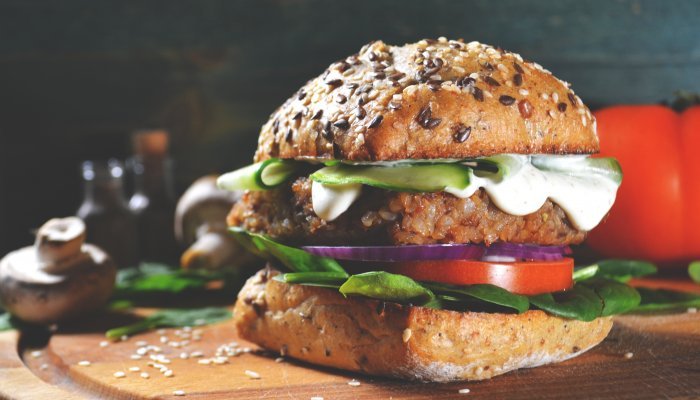According to market research firm, Meticulous Research, the plant-based food industry will be worth US$74.2 billion by 2027. Although this is only a fraction of the value of the global meat industry – which will be worth US$1,142 billion by 2023, according to statistics firm Statista – the plant-based food industry is growing at a rapid rate. Estimates put the number between 12% and 17% CAGR (compounded annual growth rate). If the research is correct, this is not a short-term trend, but rather an evolution in the way people eat.
Donovan Will, South African director of ProVeg International, attributes this growth to consumers being more aware of the ethical, environmental and health impact of their food. It is not that people have dropped meat in favour of plant-based diets like vegetarians and vegans have, but rather that meat-eaters are significantly cutting back on the amount of animal products they consume. “There are not enough vegans to account for the sales of plant-based products, so we know it is the flexitarians driving this,” says Will. In fact, consulting firm Neilson found that 98% of consumers who buy plant-based products also purchase meat.
This is further supported by research in the United States, conducted by the Plant Based Food Association, which notes that 29% of Americans regard themselves as ‘flexitarian’ and 79% of Generation Z consumers claim to eat plant-based foods once or twice a week. Flexitarians are defined as people who have a primarily vegan or vegetarian diet but who will occasionally eat meat or fish.
Opportunities for growth
This evolution in the way people are choosing to eat is presenting new and exciting opportunities for businesses wishing to enter or expand into the plant-based food industry. The 2020 European Consumer Survey on Plant-Based Foods, which lists in-demand plant-based products, highlights milk alternatives, plant-based meat, yoghurt, butter/margarine, tofu/tempeh, chocolate and baking goods, ice-cream, cheese, sauces and dressings, ready-made meals/grab-and-go meals, other dairy, sports nutrition, and seafood and egg alternatives. The report notes that demand for non-dairy cheese and vegan ready-meals is growing rapidly.
...98% of consumers who buy plant-based products also purchase meat.
“People are changing their diets for a number of reasons, but they still want to consume the foods that they have always eaten,” says Will. The results of the consumer survey reflect this, and what is happening in Europe is often true for South Africa. True to form, local demand for plant-based alternatives is seeing a rapid increase in the range and number of products becoming available across the country.
Most South African retail outlets have introduced a dedicated space for plant-based products. They all stock non-dairy milks, and vegan cheeses are now readily available. Furthermore, there are at least four or five brands of plant-based meat products in the freezer. Retailers such as Checkers and Woolworths have also introduced vegan-ready meals.
Winning with veggies
However, there is more to being successful with plant-based food than securing valuable shelf space at a mainstream retailer. And this, says Will, is where producers need to be savvy about what they produce and how they market their products.
Interestingly, Will urges producers to stop asking their customers what they want. “You are only going to get feedback on the best aspects of your product,” explains Will. In his experience, vegan and vegetarian customers will tell you they want healthy, whole-food alternatives that are sustainable and plastic-free. This is simply not true. “Every year, ProVeg South Africa hosts a vegan braai. We lay out tables full of really nice salads. We then offer burgers, sausages and cheese – basically junk food. Guess where the queues are?” Will explains.
South African vegan food brand, Fry’s, fell into this trap, says Will. They started producing black bean and quinoa balls, butternut balls, falafels and high-protein breakfast cereals at the behest of their customers. Yet, their biggest sellers remained their chicken nuggets, burger patties and sausages. Incidentally, their chicken products have been recognised as some of the best on the market!
Will urges plant-based food producers to realise that their competition is the meat and animal product industry. He says people will not base their buying behaviour on their belief system. Very few people are going to seek out a product that sells itself as being ethical to animals and saving the planet, but they will buy a product that satisfies their taste buds. As an author and vegan activist, Tobias Leenaert, says, “Changing behaviour is easier than changing attitudes.”
Bearing this in mind, Will believes plant-based food companies should take a leaf out of the book on marketing used by animal product manufacturers.
The big, bold vegan burger
This is exactly the approach behind Beyond Meat’s rise. The Los Angeles-based company is following a simple but effective marketing strategy: Beyond Meat tastes like meat. This approach is drawing in consumers who are keen to reduce their consumption of meat. Although a die-hard vegan may not want to eat anything that tastes like meat, carnivores do, which is why Beyond Meat is the plant-based world’s biggest success story with their range of burgers, mince and sausages. The company has invested millions in research and development, and it has paid off. They are often the preferred choice on any burger menu. At the time of writing, the company had a market capitalisation of US$8 billion.
The European Consumer Survey on Plant-Based Foods explains this popularity based on both taste and nutritional value. “As the market for plant-based alternatives grows, a wider range of ingredients are being used in order to broaden the product range. These ingredients are often used because of their ability to provide the consumer with high levels of protein and nutritional value, as well as for their functional properties,” says the report.
In the past, one of the biggest barriers to entry for plant-based food producers was their inability to produce food with the taste and texture that mirrors that of animal products. Another obstacle was the level of protein that consumers demand. Beyond Meat lists its ingredients, which include pea, mung bean, faba bean and brown rice proteins, along with a range of oils, minerals and natural flavours and colours. This range of ingredients is now becoming commonplace in the production of plant-based meats.
With the products and science to support the creation of new meals and flavours, Will believes the next step for plant-based food producers is to understand the psychology and cravings of their potential audience. Start by paying attention to where the queues are, he says. Invariably, KFC will have a longer lunch queue than the vegan restaurant across the road. Why? Because deep-fried, spicy chicken is what people want to eat.
If plant-based food producers want a slice of the meat-eating market, they need to create an experience that offers all the taste with none of the guilt.
How to compete as a plant-based business
No longer are plant-based businesses simply catering to a small hippy, vegan market. As the industry grows, and there is more money to be made, more and more corporate companies are jumping on the plant-based bandwagon. This means that competition is tough, and plant-based businesses need to up their game. Here’s how:
1. Change your hippy mindset to a business mindset. You are now competing with big corporate food manufactures, so you need professional systems in place across your business.
2. Think taste. Consumers may be changing their diets due to ethical, environmental and health reasons, but they are buying your product because it tastes good.
3. Think price. If your plant-based chicken nuggets are more expensive than real chicken nuggets, you are going to battle to get a broader consumer reach. People want to feed themselves and their families for less.
4. Market like your meat and dairy competitors. Consumers want to know what value they are getting from your product, not that you are saving the environment.
5. Be professional. Quality service delivery and long-term sustainability are vital. Your restaurant cannot get away with poor service when the Spur next door has five vegan options on its menu.
6. Keep refining your products. Big corporates are spending billions on research and development. This doesn’t exclude smaller businesses from improving on their offerings. New ingredients can improve the taste, texture and price of plant-based products.
7. Research and find gaps in the market. The next big thing is plant-based baby formula, seafood and ready-made, on-the-go meals. Spot the gaps and stay one step ahead.
Companies to watch
The plant-based food industry is growing rapidly and offers good investment opportunities. The following American companies are among the top names in the global market, noting market capitalisation in US dollars at the time of writing.
1. Beyond Meat - US$8 billion
2. Bunge Limited - US$6.5 billion
3. Ingredion Incorporated - US$5.21 billion
4. Archer-Daniels-Midland Company - US$24.17 billion
5. Tofutti Brands - US$9.5 million
6. Hain Celestial Group - US$3.5 billion
7. Conagra - US$18.6 billion
8. Tyson Foods - US$18.5 billion
9. Kellogg - US$23.57 billion
Source: Seeking Alpha
Preventing the next pandemic
The Covid-19 pandemic has taught us one thing: don’t eat bats. This is not even a trite joke. ProVeg has put out a report entitled: Food & Pandemics Report, Part 1: Making the Connection - Animal-based food systems and pandemics. The report investigates the link between eating animals and the risk of future pandemics.
As the Covid-19 pandemic shut down the world, global leaders have focused their efforts on containing the spread of the virus and minimising its impact on economies. The ProVeg report suggests that the worldwide community needs to turn its attention to preventing future outbreaks of novel viruses.
This report demonstrates how the risk of future zoonotic outbreaks and the severity of their impacts “increase with a surge in demand for animal-based products in today’s globalised world” and strongly urges the transformation of the global food system to prevent future pandemics.
Donovan Will, Director of ProVeg International’s South African branch, says people are blaming China, its predilection for exotic meats, and its wet markets for the spread of the disease. However, factory farming where hundreds, if not thousands, of animals are reared in small, enclosed spaces is a breeding ground for mutated and novel viruses. Avian influenza and swine flu are both linked to the mass breeding of pigs and poultry, which are as much a part of the Western diet as they are of the Chinese diet.
To read the report, click here.







